Igbo History and Origins
Crude Oil Was First Discovered In Nigeria In Edda Ebonyi State, And Not Oloibiri In Bayelsa State: Oil Discovery in Nigeria
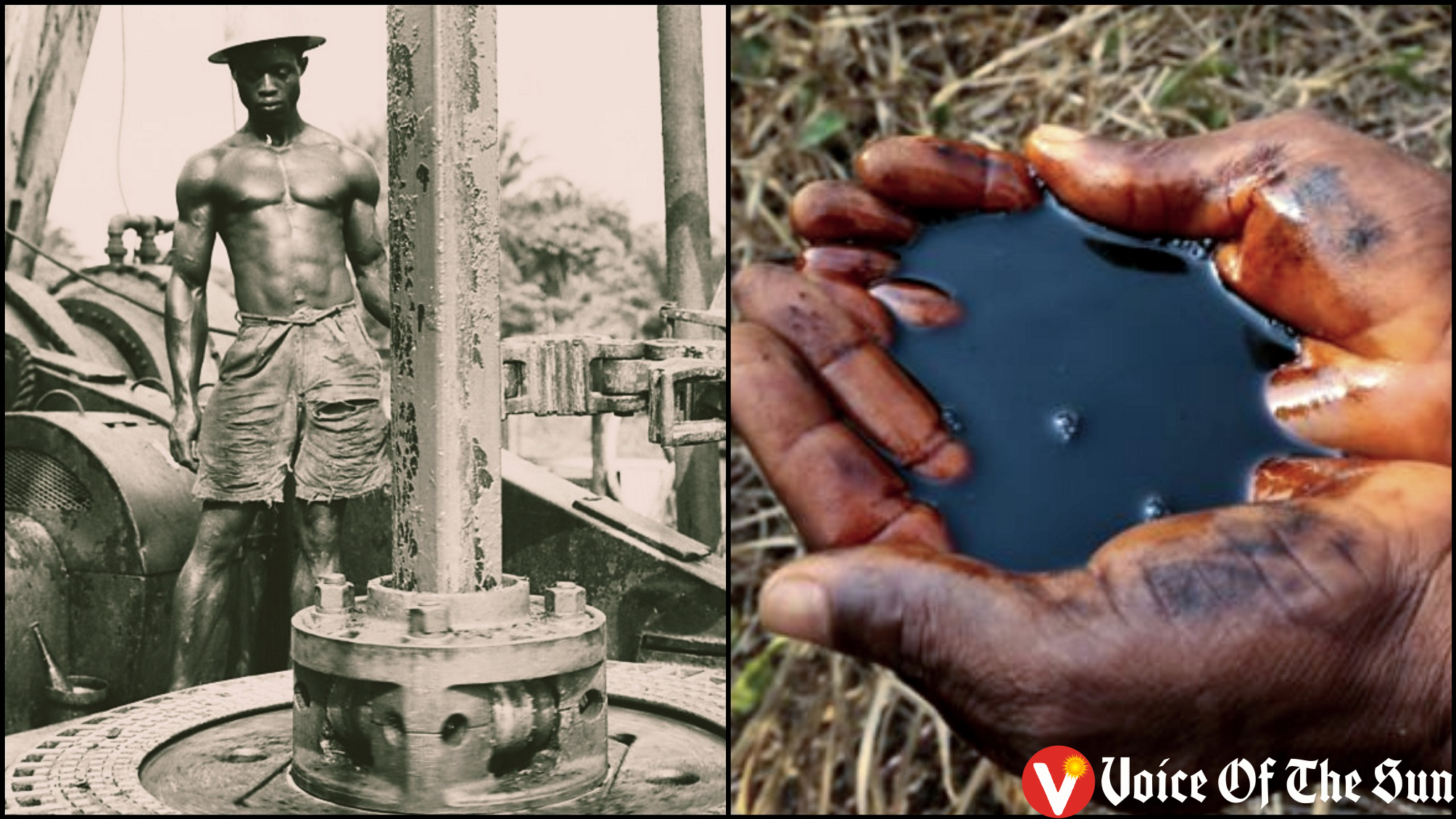
The history of oil discovery in Nigeria is filled with so many inaccuracies. These inaccuracies as we have come to discover, were either deliberate lies/propaganda by the colonial governments of the time, or very well-orchestrated twisting of a people’s history. However, we owe it to posterity and our people to set the records straight, about where crude oil was first discovered in Nigeria.
Many Nigerians and people of the world believe that crude oil was discovered in Oloibiri in today’s Bayelsa State, but it is not true – crude oil was first discovered in Nguzu, Edda, in today’s Ebonyi state, as far back 1928. This was 29 years before the discovery of crude oil in Oloibiri.
The British, who invaded Igbo land starting in the 1800s, had conquered much of the area which is today known as Nigeria, by 1900. Through sheer force, cunningness, manipulation, and bloodletting, the British had set up colonial governments around the region, and by 1914, they amalgamated the Northern and Southern protectorates into one country called Nigeria. The British colonial government, against resistance (mainly from the Igbo) was intentional in their grabbing of the land and resources that belonged to the indigenous population. It was around this period when the Ekumeku resistance was still active that the British discovered oil in Edda.
With the British controlling the affairs of Nigeria, and with the search for natural resources across the length and breadth of Igbo land, and Nigeria as a whole, oil was discovered in Edda, and on April 25, 1928, a memorandum was received from the director of geological survey, who confirmed that the fluid they had discovered in Edda was certainly crude oil of medium to high specific gravity, and its discovery was of the greatest importance.
These events were found in colonial documents. And according to the documents that were recovered documents on the Edda discovery, a sample of the oil was forwarded from Nigeria to the British government in London on July 5, 1928.
The exact dates are March 9-11, 1928, when the thorough examination of the ground was conducted, while a “detailed report was submitted for the information of His Honour on March 28, 1928.”
Mr. P. O. Kinna, who was the director of the geological survey in Nigeria, in an earlier letter on May 9, 1928, to the chief secretary to the British colonial government in Lagos, reported that:
“Oil at Ngusu (Nguzu): I have the honor to forward a report by Mr. Bain on the oil seepage at Ngusu (Nguzu), which he examined in January and February this year… This seepage of oil is very similar to that previously described from near Awgu and those occurrences warrant the hope that oil may yet be found in the beds in greater quantities. The oil appears in the bed of a small stream about half a mile from the west of the Ngusu rest house, which lies some 14 miles southwest of Afikpo… It oozes out from the sides of a pit dug in the streambed and is accompanied by the evolution of gas, which bubbles up through the water accompanying the oil. Under favorable conditions, the oil burns freely as jet and is probably a mixture of methane and ethane, two gases associated with mineral oil. A fairly steady flow of oil was maintained amounting to about two gallons per day.”
Bain, in his expert report, suggested that the oil found in Edda is unlikely to yield economic supplies if a detailed geologic survey shows that the oil is gravitating down the hillside from pebbly sandstone. This depends on if seepages are found east of the watershed. However, there is a great possibility of economic supplies of crude oil being concealed in a deep-seated natural reservoir, if further inspection show that the oil is being forced up through the shales under gas pressure.
To clear these speculations about the discovery they made, Bain advised that such a problem can only be solved by a “detailed geological investigation directed, especially, to determining the underground rock structures.”
When they wanted to forward the sample to London, the Afikpo Divisional District Officer, Mr. Shelton, in reporting about the oil discovery, stated in his letter to the Resident, Ogoja Province: “The finding of further seepages is most important, but the people are not keen on rendering assistance to the discovery, being, as usual, suspicious as to government’s intentions with regard to their land.”
To ensure the oil was tapped, Shelton solicited financial assistance from the colonial government Ogoja to use it to motivate the people. His words were: “in order to secure the aid of some of the local inhabitants.”
After the samples of the crude oil from Edda were sent to London, the Imperial Institute, South Kensington London, SW7 on December 20, 1928, replied with a letter to the geologists in Nigeria, in respect of the Edda oil samples in Reference No. M.3566. The letter wrote: “It will be noted that oil of similar quality to that represented by the sample, if free from sediments and water, could be used as a fuel oil.” This was signed by L.M Henderson Scott, Principal, Mineral Resources Department.
The document also points to another laboratory result on the same sample that was sent to the Imperial Institute, London. The results were as follows: “The sample, which is the subject matter of this report was sent to the Imperial Institute by the director of geological survey of Nigeria and referred to in his letter 523/51 of 26th October, 1928. Results of examination of the sample, which measured about 650c.c, was contained in two bottles, consisted of reddish-brown thick oil. Free from objectionable odour, containing a little water together with some earthy sediments. The mixed samples gave the following results on examination: Specific gravity of 60 degrees Fahrenheit (15.5 degrees Celsius) -0.928. Viscosity – (Redwood), time of flow of 50cc at 60 degrees Fahrenheit (15.5 degrees Celcius)…900 seconds.”
Flash Point: (Pensky Martens closed test)113 degrees Celsius. Calorific Value: 10615 calories or 19107 British Thermal Units. Sulphur, S: …0.18 percent. Distillation by the Engler method gave the following: Only a trace of paraffin wax was present in the sample. The above results show that the sample bears considerable resemblance to the one from Nigeria previously examined here (see Imperial Institute report M. 3417 dated July 1928)
This investigation and unearthing of this report were carried out by a team from Saturday Sun, who searched the Archives in Enugu concerning the Edda oil finds. They also went ahead to pay a visit to Edda to see spots where the crude oil was discovered. They say it was revealing and rewarding.
Saturday Sun’s team reports that the file that contains the correspondence and reports is intact and filled with indisputable facts about the crude oil discovery in Edda, among other parts of Igbo land. They went further to say that going by the documents they examined, there is no oil find/discovery in Nigeria that is older than that of Edda, in Ebonyi State.
It therefore means that the British colonial administration, together with other Nigerians intentionally twisted the history of Nigeria to displace Igbo land as the first site of oil discovery in Nigeria. It shows that the popular reported history of Oloibiri, in present-day Bayelsa, as the first oil find in Nigeria was false.
The 45-page file carried the details: No. OG/2003, Subject: Discovery of Oil in Afikpo Division by Mr. L.H. Shelton, then D.O (Divisional Officer of the British colonial government). The file was deposited at the Archives on January 15, 1956 – 3years before Nigeria’s independence.
This file contains the activities of a team of geologists that carried out the research. They sank 20 test pits at various spots at Edda, which provided evidence of the existence of crude oil of Redwood class. All of the samples of crude oil were reported to be sulfur-free.
This period when the file was deposited coincides with the second oil discovery in Edda by Shell BPC at another location. While the first crude oil discovery was in Nguzu, the report puts the second oil discovery was at Ezi Edda.
While visiting the second location, the team from Saturday Sun saw the landmark of the crude oil discovery still intact. They reported an oil well marked with a platform, just about a pole off the major road that leads to Ndiba Edda. The exact location is between the Orienta Primary School, Ezi-Edda, and Etiti Secondary School and a health centre.
They said that the concrete slab which marks the platform of the oil discovery is fading away, as a result of wear and tear, from age and the activities of school children that shake and tamper with the platform.
Mr. Arua Paul, a native of Ezi Edda, who took Saturday Sun to the location, explained that as a young school boy in the primary school in the 70s, there used to be a red plastic cap on the metal vertical projection on the slab that had an inscription of date of dig of the well and the company that dug it.
The Saturday Sun team also interviewed other indigenes of Ebonyi, who confirmed that they knew of the discovery of the oil in Edda.
Speaking to Prince Sunny Ugwuocha, a calibration engineer and principal partner of an oil servicing firm in Lagos, he confirmed that oil was discovered in his community in 1928. Another man, Mr. Nnachi Kalu, a chemist and petroleum analyst, also admitted to Saturday Sun of his knowledge of the oil find in Edda, which is his hometown.
Conclusion
The discovery of crude oil and natural in Nigeria and its economic importance cannot be overstated. Nigeria has the right natural resources to catapult her to becoming a first-world nation, but despite the availability of crude oil in abundant quantity in Nigeria, the successive Nigerian government, since amalgamation till date, has prioritized profit for the local elite, and foreign companies, while leaving nothing for the masses – Moreso, for the people who own the crude oil.
So, in as much as this article focuses on telling the true story of the discovery of crude oil in Nigeria, we are also pointing to the need for the masses to benefit from the abundance of crude oil in Nigeria.
Most importantly, Nigerian historians should desist from twisting history such as this, to take the credit for the first-place oil was discovered in Nigeria from Igbo land, and give it to Oloibiri – it goes to prove that there is a gang up against Ndi Igbo in Nigeria, and that this gang up is perpetuated through the smallest to lies, to the biggest of propaganda. Let truth lead.
This article also probes the big questions which many have asked: Why are there so many abandoned oil wells, and oil finds in Igbo land? Why is the Federal government of Nigeria and her NNPC not eager to drill, extract and commercialize the crude oil in Edda, and many other parts of Igbo land?
The answers to these questions will tell you the true intentions of the powers that be (Britain, the Nigerian government, and foreign oil companies), towards Ndi Igbo.
This Article Was Written By Chuka Nduneseokwu, Editor-In-Chief, of Voice Of The Sun
Please Support and DONATE To Us. Help Us In Preserving Our History, Culture and Beliefs as Ndi Igbo. CLICK HERE to assist us financially.
-
![How Igbo People Started Becoming Christians 181 Years Ago (1841–2022): A Brief History Of Christianity In Ìgbòland [Part I] How Igbo People Started Becoming Christians 181 Years Ago (1841–2022): A Brief History Of Christianity In Ìgbòland/Among The Ìgbò [Part I]](https://voiceofthesun.com/wp-content/uploads/2022/07/How-Igbo-People-Started-Becoming-Christians-181-Years-Ago-1841–2022-A-Brief-History-Of-Christianity-In-Igboland-Among-The-Igbo-Part-I-1-400x240.jpg)
![How Igbo People Started Becoming Christians 181 Years Ago (1841–2022): A Brief History Of Christianity In Ìgbòland [Part I] How Igbo People Started Becoming Christians 181 Years Ago (1841–2022): A Brief History Of Christianity In Ìgbòland/Among The Ìgbò [Part I]](https://voiceofthesun.com/wp-content/uploads/2022/07/How-Igbo-People-Started-Becoming-Christians-181-Years-Ago-1841–2022-A-Brief-History-Of-Christianity-In-Igboland-Among-The-Igbo-Part-I-1-80x80.jpg) Igbo History and Origins3 years ago
Igbo History and Origins3 years agoHow Igbo People Started Becoming Christians 181 Years Ago (1841–2022): A Brief History Of Christianity In Ìgbòland [Part I]
-
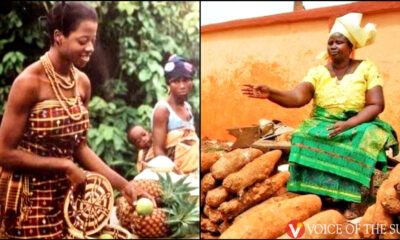
 Igbo Cultures And Traditions3 years ago
Igbo Cultures And Traditions3 years agoThe Four Igbo Market Days and Their Significance In Odinala na Omenala ÌGBÒ
-

 Igbo History and Origins2 years ago
Igbo History and Origins2 years agoNnamdi Azikiwe: Legacy of a Nigerian Nationalist And Igbo Icon
-
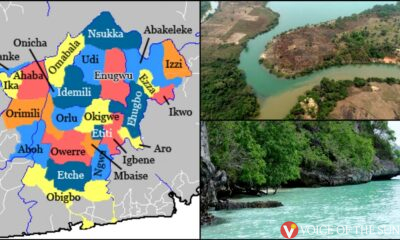
 Igbo News3 years ago
Igbo News3 years agoIgbo Land Is Not Landlocked – We Have The Deepest And Shortest Access To The Atlantic Ocean
-
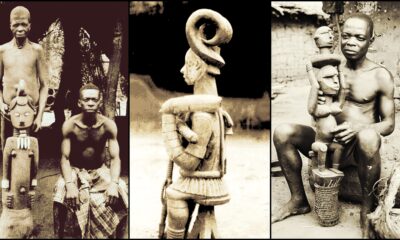
 Igbo Spirituality2 years ago
Igbo Spirituality2 years agoÌgbò Ancestors Did Not Worship Idols and Demons – A Journey Into Ịgọ Mmụọ In Odinana Ìgbò
-
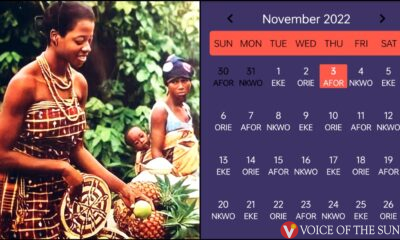
 Igbo Cultures And Traditions2 years ago
Igbo Cultures And Traditions2 years agoWhich Igbo Market Day Is Today – Get The Complete Igbo Calendar
-

 Igbo Spirituality2 years ago
Igbo Spirituality2 years agoUnderstanding Ndị Ịchie In Igbo Cosmology: Who Are Ndi Ichie In Odinana na Omenana Ìgbò?
-

 Igbo History and Origins2 years ago
Igbo History and Origins2 years agoChukwuemeka Odumegwu Ojukwu: The Life And Legacy Of An Igbo Hero
